RHI scandal: Advisers 'pressurised Jonathan Bell'
- Published
Arlene Foster says that if attempts were made to alter papers it "wasn't on my say-so"
Top DUP advisers "intervened" to prevent the closure of a catastrophic energy scheme that could cost taxpayers £400m, a former minister has alleged.
Overgenerous offers of fuel subsidies meant the Renewable Heat Incentive (RHI) scheme went vastly over-budget.
Jonathan Bell, who succeeded Arlene Foster as minister at the department that set up the scheme, made the claim.
Mrs Foster, Northern Ireland's first minister, has denied any wrongdoing in the so-called "cash-for-ash" scandal.
The RHI scheme was set up by the Department of Enterprise, Trade and Investment (Deti) to encourage businesses and other non-domestic users to stop using fossil fuels and instead install renewable heating systems, mostly burning wood pellets.
But the subsidies it paid out were far greater than the cost of the pellets, leaving the scheme open to abuse as claimants could earn more cash the more fuel they burned.
One whistleblower has said that some applicants are in line to pocket as much as £1.5m over 20 years for heating empty sheds and factories.
About £20m a year for the next two decades could be taken from the public purse to cover the overspend.
'Cleanse the record'
In an exclusive interview with the BBC's Stephen Nolan, Mr Bell claimed that two senior DUP advisers "were not allowing this scheme to be closed" at the point when costs were spiralling out of control in autumn 2015.
One of those, he said, was Timothy Johnston, who was advising then first minister and DUP leader Peter Robinson.
The other was Dr Andrew Crawford, an aide at the Department of Finance and Personnel, which at that point was under the control of Mrs Foster, who now leads the party.
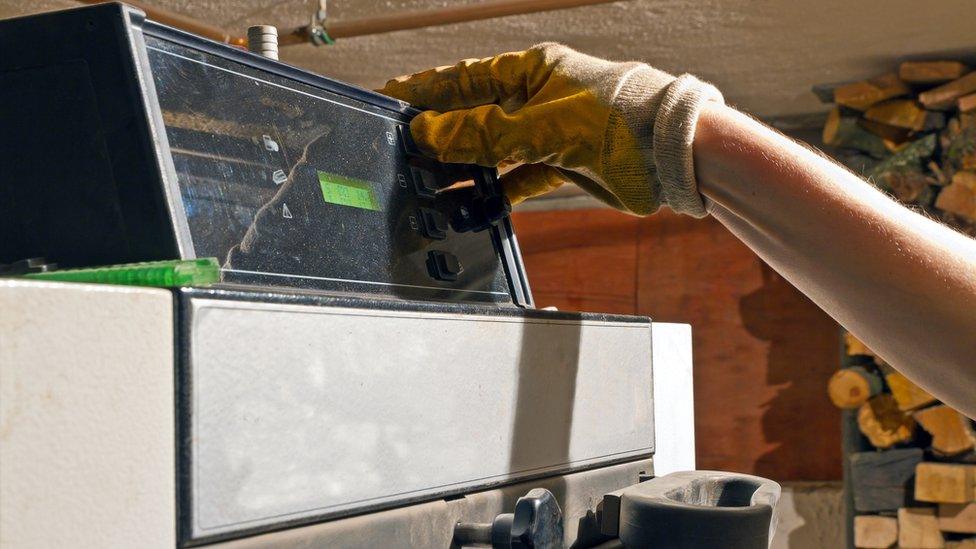
Taxpayers could face a £400m bill over 20 years to cover the RHI scheme's spending commitments
According to former enterprise minister Mr Bell, the advisers, who deny the allegations against them, secretly tried to "cleanse the record" of references to Mrs Foster.
Those alleged attempts to alter the papers were made "without my knowledge, without my consent", Mr Bell said, and were revealed to him by a senior Deti civil servant.
An email trail exists to prove the claim, he said.
And the two most senior civil servants in the department are prepared to put evidence of the interference "formally on the record in an inquiry", he added.
'Documented email trail'
Mr Bell also claimed that Mrs Foster was "hostile", "abusive" and "highly agitated" when she "overruled" his move to finally close the botched scheme early this year.
He said the first minister owes the people of Northern Ireland an apology, and he called for a full public inquiry.
Arlene Foster says Jonathan Bell "used his physical bulk" during their confrontation
However, the first minister said Mr Bell "took all the decisions" and insisted that she would not stand down from her role.
When Mrs Foster was enterprise minister, a whistleblower raised concerns about the flaw in the RHI scheme, but they were ignored by Deti officials.
Mrs Foster has since said that civil servants did not tell her of any issues arising from the whistleblower's alert.

Analysis: Mark Devenport, BBC News NI political editor
"Cui bono?" The old Latin question about who stands to gain needs to be asked again and again.
While the blame game is necessary and inevitable, no-one must lose sight of the fact that Stormont is committed to paying out for this scheme for the next 20 years.
Those contracts must be re-examined in order to see if the "too good to be true" deal can be renegotiated.

Mr Bell said he wanted the scheme to be amended from 1 October last year to reduce the subsidy rate.
That came after Deti permanent secretary Dr Andrew McCormick told him there was "significant concern" that its costs would soon become unsustainable.
But Mr Bell said: "I was then informed by my special adviser in the department that other DUP [advisers] were not allowing this scheme to be closed.
"I believe my officials when they tell me there is a documented email trail, which shows an attempt - behind my back, without the knowledge of the minister of the department - to cleanse the record."
He said that, given the severity of the issue, he wrote to Mrs Foster, the DUP's deputy leader Nigel Dodds and Lord Morrow, the party's chairman, to tell them of his concerns.

Crucially, the initiative's lucrative tariff offer remained in place for almost another seven weeks, until mid-November 2015.
During that period, there was a spike in applications to the RHI scheme - 429 in October and 452 in November.
The approved applications during those two months are expected to drain the public purse of £485m.
'Took the decision'
But Mrs Foster said no-one from from the Office of the First Minister and Deputy First Minister intervened to keep the lucrative scheme open and nor did she as finance minister.
"What I do understand is that advisers, of course, will advise but the minister takes the decision," Mrs Foster said.
She accused Mr Bell of "trying to distract from the fact that he took the decision".
Mr Johnston and Dr Crawford said they never sought to keep the RHI scheme open against the wishes of the minister, adding that their roles were simply "to offer advice" and not to "influence any decision".
Dr Crawford acknowledged that his brother is a director of a company that availed of the scheme.
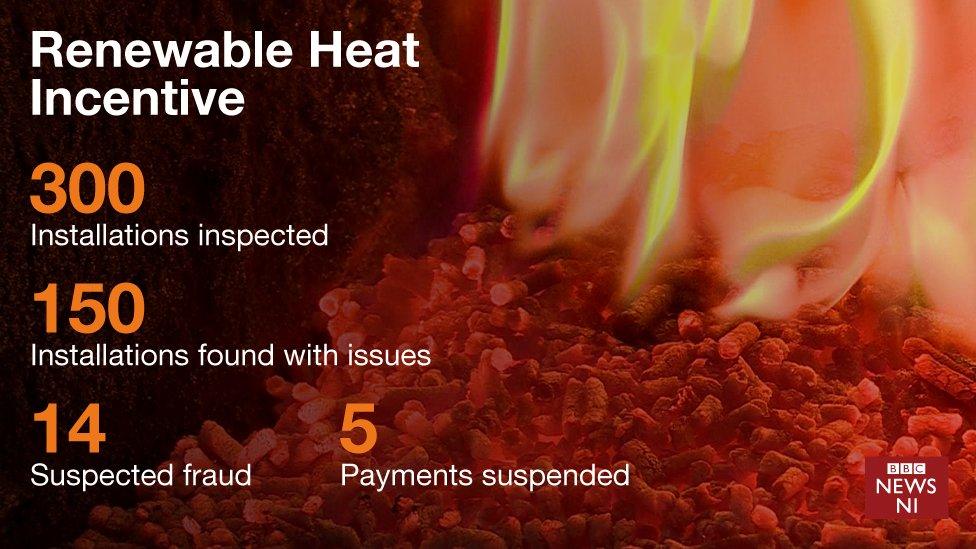
In January, the Treasury told the Northern Ireland Executive that it would not foot the bill for Stormont's enormous overspend on the RHI scheme.
Mr Bell said he was told by Dr McCormick, his top civil servant, that the scheme must immediately be halted.
The former minister told the BBC: "In fact, what [Dr McCormick] said to me was: 'You have to close the scheme and I'm no longer prepared to deal with these outside influences - I'm putting this on the record to you.'
"[Dr McCormick] said to me: 'If you want me to continue the scheme as your principal civil servant you must issue me with a ministerial directive.'"
'Advisers dropped heads'
But Mr Bell suggested that during a confrontational meeting with Mrs Foster, which he claimed was witnessed by three of the DUP's top advisers, she ordered him to keep it running for a further two weeks.
"In the strongest terms, both in volume and force, Arlene Foster, as first minister, overruled me and told me to keep the scheme open," he said.
"To be fair, I was fairly strongly telling her back: 'No.'
"I will never break the law, and if I'm not prepared to do it I'm certainly not prepared to instruct somebody else to do it."
Arlene Foster was "highly agitated" when Jonathan Bell tried close the RHI scheme, he says
He said he "turned to the special advisers" - Mr Johnston, Stephen Brimstone and Richard Bullick - and asked them: "What on earth are you thinking of now reopening [the scheme]?'
"They sat and dropped their heads, they had no answers to me."
Mr Brimstone and Mr Bullick said they did not witness the exchange between the ministers.
Mr Brimstone, who left his job as an adviser to Mrs Foster last month, confirmed to the BBC that he was a claimant of the scheme.
But he added that his installation has been inspected by auditors, who have given him "written confirmation... that they are satisfied" it is compliant with the scheme's regulations.
'Intimidated and bullied'
Mrs Foster also contested Jonathan Bell's version of events, and said that instead of proposing an immediate closure of the scheme Mr Bell wanted it to end in March this year, a date that she deemed to be too late.
He was then advised to bring it forward, she added, but he became "very aggressive with me" when his decision to cease it immediately was refused because it was believed it could lead to legal challenges from applicants "still in the system".

The RHI scheme offered claimants £1.60 for every £1 of fuel they burned
"He came in and used his physical bulk to stand over me in quite an aggressive way," Mrs Foster said.
"The Jonathan Bell that appears [in the BBC interview] is not a Jonathan Bell that would be familiar to many of his political colleagues, to many of his civil servants that he worked with in the department or to many in the business community.
"I have many female colleagues who have felt intimidated and felt bullied over the years - I certainly did on that occasion."
The RHI scheme continued for two more weeks after the confrontation between Mr Bell and Mrs Foster.
The first minister hopes that more than half of the scheme's projected £400m cost to the Northern Ireland budget can be saved, with the executive working on a "very substantial plan" to deal with the issue.
"A mark of a politician is not in good times, it's in challenging times," she said.
"I'm determined, while others walk away, to make sure that we find a solution to all of this.
"I owe it to the people of Northern Ireland, and I take my duties and responsibilities as first minister very, very seriously."
- Published15 December 2016
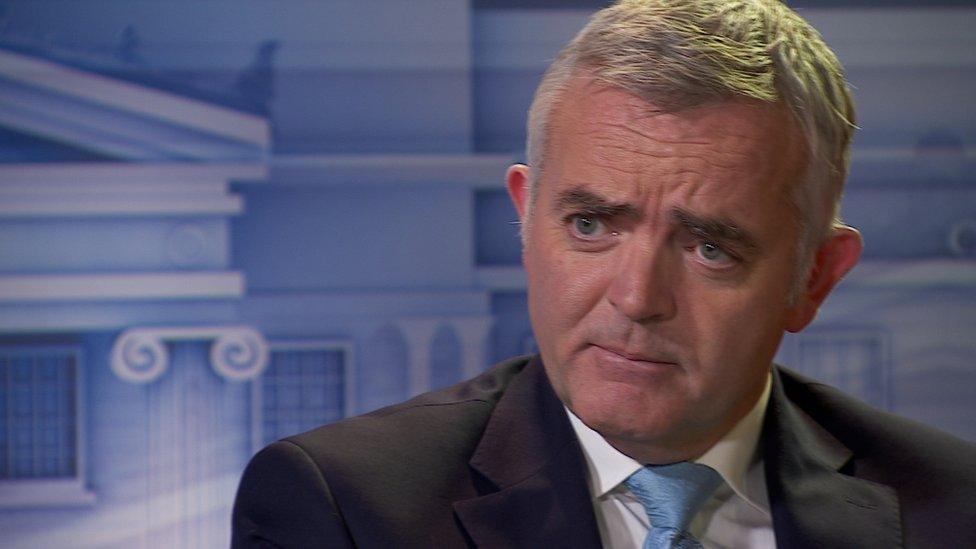
- Published14 December 2016
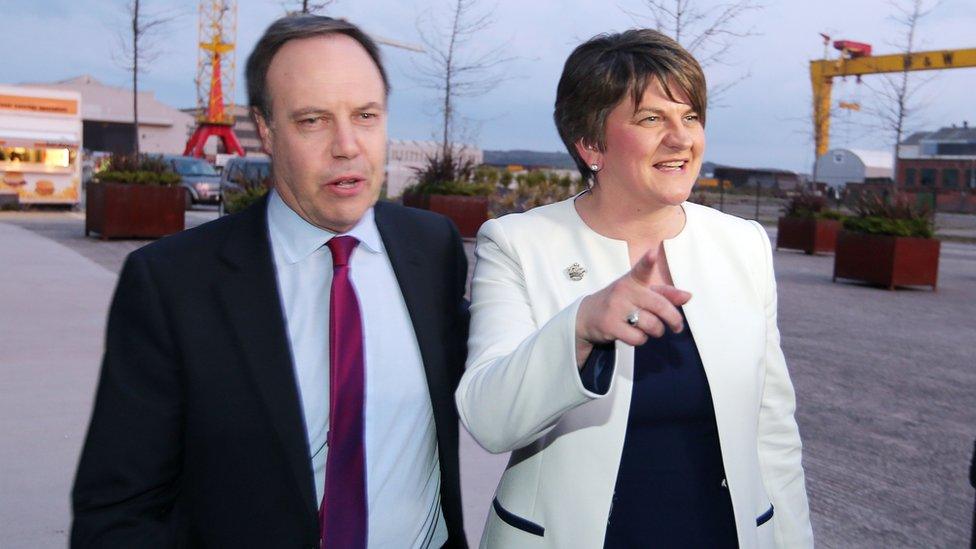
- Published14 December 2016

- Published14 December 2016
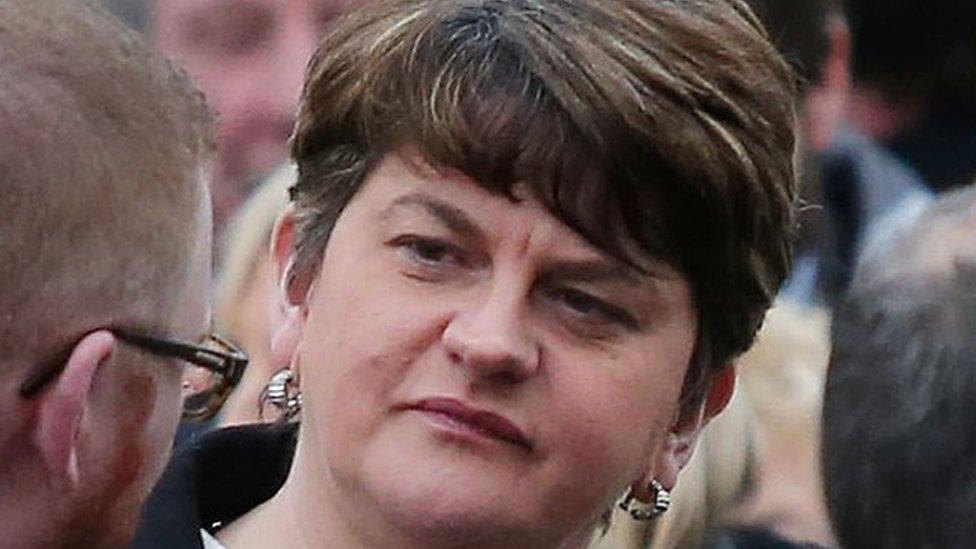
- Published13 December 2016
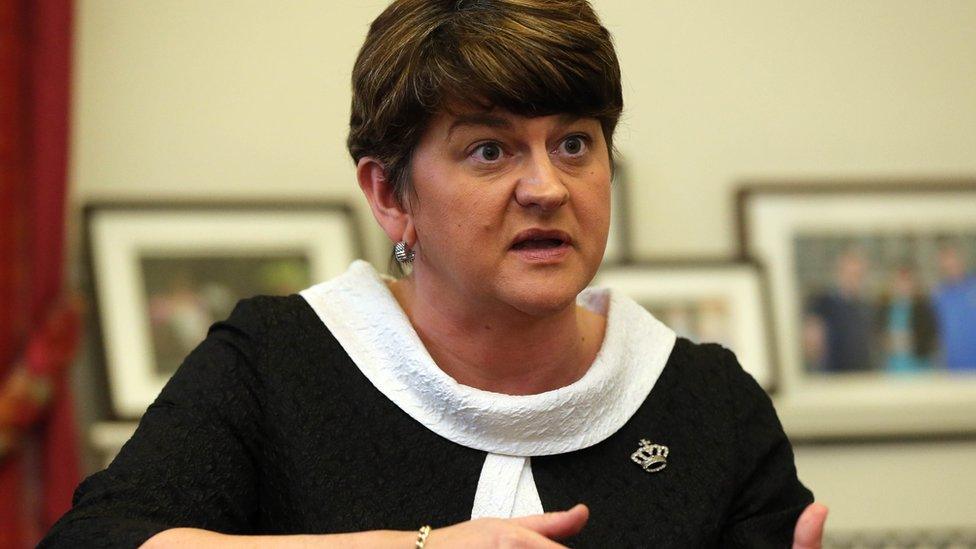
- Published12 December 2016

- Published11 December 2016

- Published8 December 2016
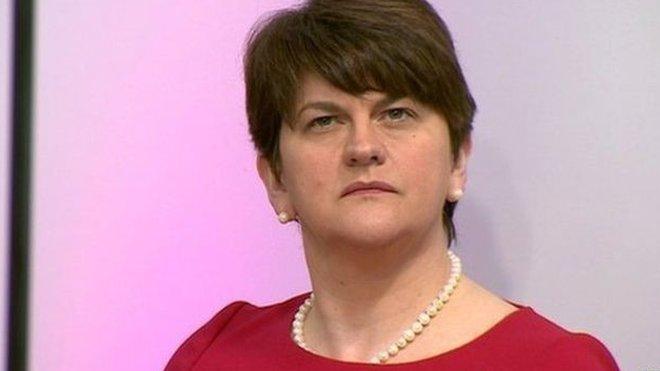
- Published8 December 2016

- Published30 November 2016

- Published9 November 2016

- Published26 October 2016

- Published28 September 2016

- Published19 August 2016
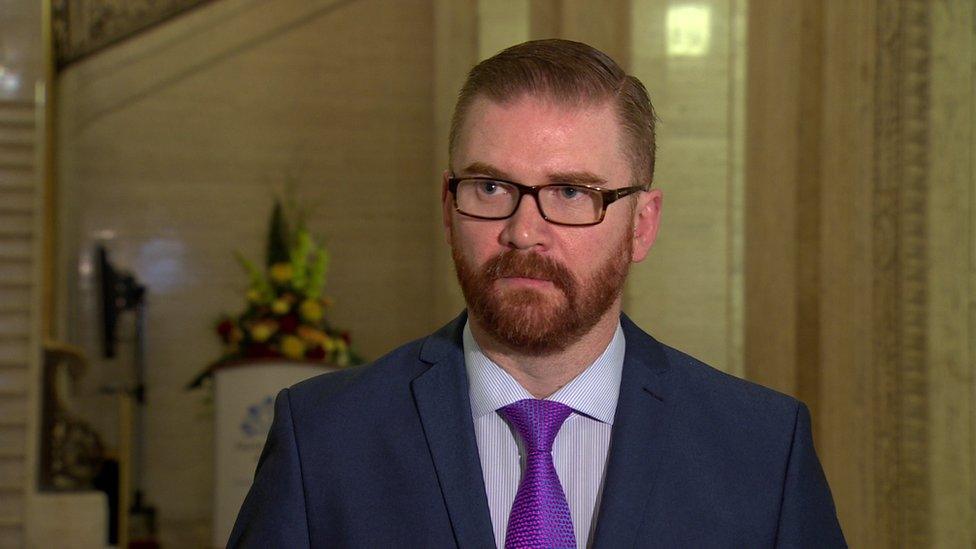
- Published15 August 2016

- Published5 July 2016

- Published9 February 2016
